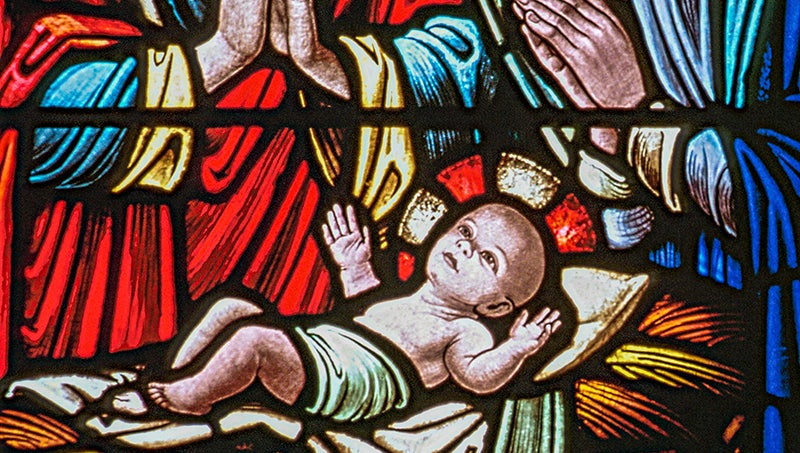The Christmas story — with a twist
Published 6:15 pm Friday, December 23, 2016
(Editor’s note: In observance of Christmas, the Washington Daily News is replacing the regular Closer Look feature with a closer look at the Christmas story by retired Episcopal priest, Beaufort County resident and WDN contributor Polk Culpepper.)
Once upon a time, a young couple was driven by the technocratic census-takers of an Empire to leave their hometown and travel on foot and donkey to the place of their birth, a little town about 70 miles away. The couple was desperately poor — he a carpenter, struggling to make ends meet; she an unwed mother-to-be, subject to shame and discrimination (if not death) for not being married.
One or another empire had occupied the couple’s country for centuries. The armies of the latest were garrisoned in strategic towns throughout the nation so that they could be quickly mobilized to brutally eradicate any attempt at liberation by rebels or self-appointed messiahs.
The Empire had supernatural gods to which it sacrificed, but its true religion was civic and based on worship of the emperor. Its leaders were thought to be divine and often referred to as Son of God, God from God, Lord, Redeemer and Savior of the World. Its current emperor, Augustus, was even believed to have been conceived by the sexual union of a god with a human being.
Its rationale for the violent invasion and subjugation of other nations was attributed to its sense of itself as exceptional and its self-serving desire to bring peace to what it perceived to be chaos. Its true motives were darker and inherently selfish — the exploitation and extraction of wealth, minerals and labor for the benefit of itself and its citizens.
According to accounts written about the baby many decades later, the empire demanded that all those living within its borders return to their places of birth and be registered on the tax rolls. The purpose of the mandate was to maximize tax revenues from the couple’s small nation and could not have come at a worse time for the young couple. The woman’s baby was past due. A bumpy ride on the back of a donkey would only help to induce labor.
Adding to their personal problems, the young woman, Mary, and her fiancé, Joseph, arrived in the place of their birth, Bethlehem, only to find it crowded by others ordered home for the census. Every room in the little town was taken. A kindly, old innkeeper, seeing that Mary was great with child, allowed her to sleep in an animal stall behind his modest establishment. Surrounded by the stench of excrement and the baying, baaing and mooing of sheep, cows and donkeys, the erstwhile parents laid down to sleep, hoping to be counted the next day so that they could return to Nazareth before the baby was born.
Babies, however, are notorious for their disdain for schedules set by adults. They come when they are good and ready. Mary’s baby decided to come that night. It was not the custom then, as it is now, that a baby’s birth be announced to those outside the immediate family. The birth of Mary and Joseph’s baby, however, was communicated to strangers — magi from foreign nations and shepherds.
As a class, shepherds were about as low on the socio-economic ladder as one could get — lower than peasants; on the margins of what passed for society; and especially looked down on by those in positions of power and wealth. Ironically, those on the margins of society, like the shepherds, would become the baby’s main concern.
From such humble beginnings, the babe would grow to become known among his people as a prophet who envisioned and called his people to live in a new kind of Kingdom, one which espoused values diametrically opposed to those of the kingdom which oppressed and violently exploited them. My Kingdom, he taught, is one based on the values of the God we worship, the God revealed in our scriptures, the God who calls us to love neighbors and enemies alike, embody justice and mercy for the poor, discriminated against and the immigrant, respond to attacks with non-violence and treat all persons with dignity and respect. The Empire, on the other hand, knows nothing of these values and exists only to increase its wealth and prestige through violence and oppression.
Both kingdoms asserted the same titles and made similar claims for their leaders. But Jesus was not Caesar. And Roman imperial theology was not the theology about which Jesus spoke. To pledge allegiance to Rome was to promise to be bound by the belief that peace could only come through violent victory over enemies. To profess believe in Jesus was to oppose that understanding and pledge oneself to the work of peace through non-violent justice and love.
At last, Christmas is not about the giving of gifts (however heartfelt) or parties or mistletoe, but about which kingdom we chose to live in: the Empire’s kingdom of peace through violent subjugation and exploitation or Jesus’ Kingdom of peace through nonviolent love and respect for all kinds and conditions of people? The question penetrates to the very heart and soul of who we are as individuals and as a nation. We refuse to engage it to our detriment.






